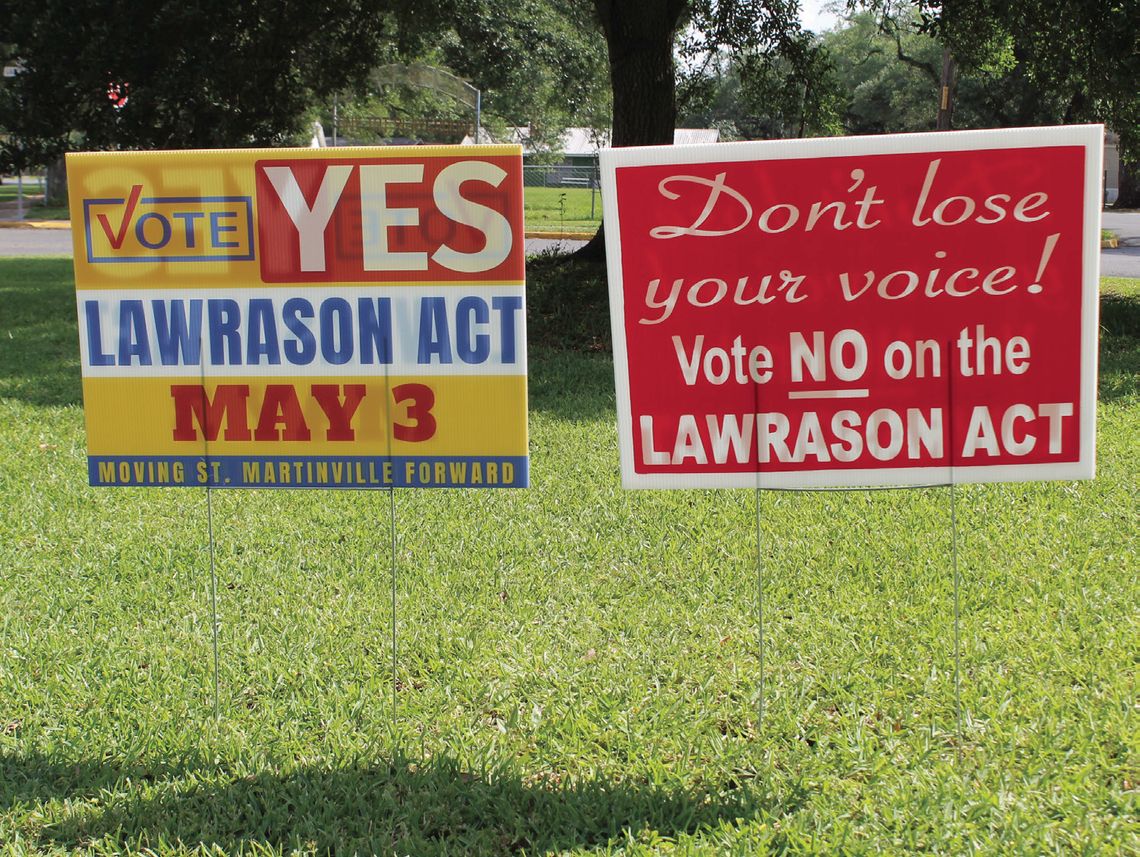Only two items are on the ballot at the polls this Saturday, but both have far-reaching consequences for voters in St. Martin Parish.
Voters throughout the parish will decide on a $30 million parishwide school district general obligation bond to finance capital expenditures including construction, acquisition and improvements to schools.
The other ballot item in the parish will only be at St. Martinville voting precincts, where voters will decide how the city will be governed.
Voters in the city will choose either to adopt the Lawrason Act or continue with the current Special Legislative Charter form of government.
That issue has been discussed at two town-hall meetings in the city as well as at several City Council meetings since the issue was first broached at a meeting in early February.
The current legislative charter was established in 1898. St. Martinville is one of 24 communities in the state governed by a legislative charter...The majority of municipalities in the state are governed under the Lawrason Act.
The Act, enacted in 1898 and amended several times over the years, sets forth a general legislative charter for all municipalities created after its effective date (July 29, 1898) other than those electing to operate under a home rule charter form of government, as well as for those created prior to its effective date that subsequently choose to accept its provisions.
The intent of the law is to provide a uniform type of government for all municipalities in Louisiana. This fundamental municipal incorporation law currently governs nearly 250 villages, towns and cities in Louisiana.
Election
The Lawrason Act requires a municipality to have certain municipal officers, including a mayor and board of aldermen (city councilmen), a chief of police, who can be either appointed or elected, a tax collector and a clerk.
The Lawrason Act authorizes the Mayor, subject to Board of Aldermen confirmation, to appoint other municipal officers as necessary.
The mayor’s duties and responsibilities include supervising and directing the administration and operation of all departments, offices and agencies, other than a police department with an elected chief of police.
All administrative staff members are subordinate to the mayor. The mayor also may delegate performance of administrative duties to municipal officers or employees as he or she deems necessary and advisable.
The mayor has the power to appoint and remove employees, other than the employees of a police department with an elected chief of police, but civil service rules and regulations apply to those employees.
Appointment or removal of a nonelected chief of police, the clerk, the attorney, or any department head is subject to board approval, except that in the case of a tie vote, the mayor’s recommendation prevails.
The Board of Aldermen must number at least five with no more than nine. The current city council includes five members.
The board of aldermen is the municipality’s legislative body.
The board (by ordinance) sets the salaries of the mayor, aldermen, clerk, chief of police and all other municipal officers, The board may increase or decrease the salaries of non-elected officials, and the board may increase, but not decrease, the salaries for elected officials (including aldermen) during their term in office.
Board approval is required for the appointment or removal of a non-elected chief, clerk, municipal attorney, any department head and a CPA conducting the review, compilation or audit as required by the audit law.
The board must approve or disapprove the annual operating and capital improvements budgets submitted by the mayor.
The express or implicit authorization of the board is required for all public expenditures.


